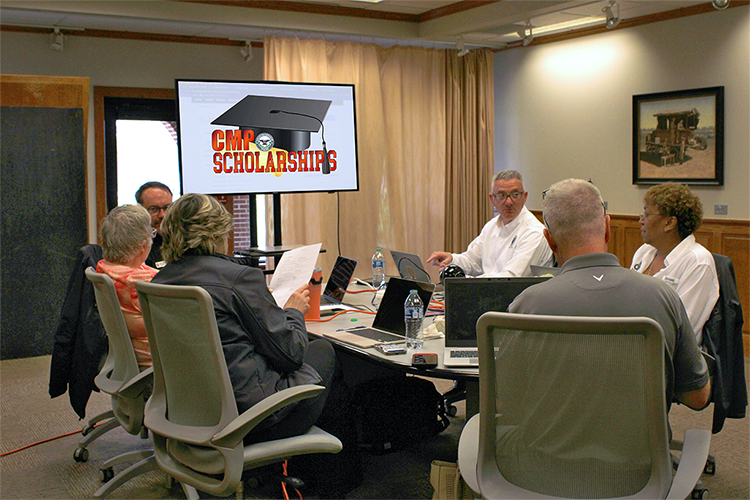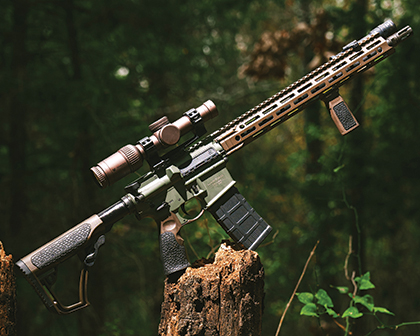Senate Gun Control Agreement Strikes A Nerve
Especially by Washington standards — that was quick. The “Bipartisan Safer Communities Act” was signed into law June 25 by President Joe Biden just days after it was formally introduced in the Senate.
Nine days after a bipartisan group of 20 U.S. senators announced a “commonsense proposal” agreement on gun control measures — led by Sens. Chris Murphy (D-CT), John Cornyn (R-TX), Kyrsten Sinema (D-AZ) and Thom Tillis (R-NC) — the text of the “Bipartisan Safer Communities Act” was unveiled late June 21.
Upon introducing the bill, Sen. Cornyn admitted it’s “not going to please everyone.”
“Some think it goes too far. Others think it doesn’t go far enough. And I get it,” he said. “But the nature of compromise and the nature of actually wanting to get a result requires everybody try to find common ground where we can.”
It’s safe to say this was a self-fulfilling prophecy — as it was been roundly panned by industry organizations before its quick passage through the Senate the evening of June 23.
What’s In The Bill?
Just 48 hours after the 80-page bill was unveiled, it passed through the upper house of Congress — with 15 Republicans joining all 50 Democrats in support of the bill, which circumvented the filibuster.
Speaker Nancy Pelosi (D-CA) moved quickly in bringing this bill to a vote in the House, which passed in 234-193 vote June 24. Fourteen Republicans joined with Democrats in supporting the measure.
June 25, President Biden signed the bill into law, saying, “While this bill doesn’t do everything I want, it does include actions I’ve long called for that are going to save lives.”
So what’s in the bill? It includes several provisions, including enhanced background checks for gun buyers under age 21, setting aside $750 million in federal grant funding to help states implement red flag laws (as opposed to a federal red flag law) and closing the so-called “boyfriend loophole,” which would bar dating partners from owning firearms if convicted of domestic abuse. In addition, the bill would strengthen the penalty of straw purchases and trafficking guns.
It’s worth noting what isn’t in this bill. Much to the chagrin of anti-industry groups, it does not include universal background checks, banning the sale of high-capacity magazines or AR-15s or restricting sales to buyers under 21 — which were nonstarters from Senate Republicans.
Reaction From Industry Organizations
In a statement released June 23, NSSF announced while it is “encouraged by portions of the proposal,” it expressed “important concerns about other aspects of the bill” that would have an effect on the industry and Second Amendment rights of law-abiding citizens.
“There are several provisions of this legislative package that NSSF could support including providing more resources for mental health services and school security. However, the ambiguity over state records, the lack of clear definitions, and unaddressed due process concerns prevent us from supporting this legislative package as presented,” said Joseph Bartozzi, NSSF president and CEO.
Arguing this legislation could be used to restrict lawful gun purchases, the NRA issued a firm rebuttal of the proposed legislation.
“The NRA will support legislation that improves school security, promotes mental health services and helps reduce violent crime. However, we will oppose this gun control legislation because it falls short at every level,” the NRA said in a statement. “It does little to truly address violent crime while opening the door to unnecessary burdens on the exercise of Second Amendment freedom by law-abiding gun owners.”
The Firearms Policy Coalition (FPC) provided a strong rebuke against the legislation, asserting, “inalienable rights cannot be negotiated and cannot be voted on.”
“The proposal seeks to chill the right to keep and bear arms by incentivizing local disarmament proceedings, of which many states currently employ secret ex-parte hearings, massive penalties and enhancements reminiscent of the mass incarceration of the so-called war on drugs, naked discrimination against young adults, and an aggressive assault on peaceable conduct,” the FPC said in a statement.
A Win For Concealed Carry
While it remains to be seen how the passage of the “Bipartisan Safer Communities Act” will influence fear-induced sales in the consumer market, the industry is simultaneously celebrating the Supreme Court’s June 23 ruling in the New York State Rifle & Pistol Association v. Bruen case. This landmark ruling, which struck down New York’s restrictive “may issue” concealed carry permitting scheme, will absolutely impact the concealed carry segment in a positive way, but it’s still too early to see just how much.
“What this ruling might mean for a national conceal carry movement is still to be determined, but this certainly makes that concept a more plausible scenario,” said Kenyon Gleason, NASGW president.
The NSSF applauded the Supreme Court’s decision.
“This is a tremendous victory for the rights of all law-abiding Americans to exercise the pre-existing and God-given right to keep and bear arms for self-defense,” said Larry Keane, NSSF SVP and general counsel. “This establishes that ‘may issue’ permitting schemes that relegate the Second Amendment to a second-class right that can be meted out by government bureaucrats are unconstitutional. The firearm industry is tremendously grateful to the U.S. Supreme Court’s faithful application of Constitutional rights.”
All this to say: the events of this past week will certainly have lasting reverberations on the future of the U.S. firearms industry.
Editor’s Note: This is a developing story and will be updated as more information becomes available.




